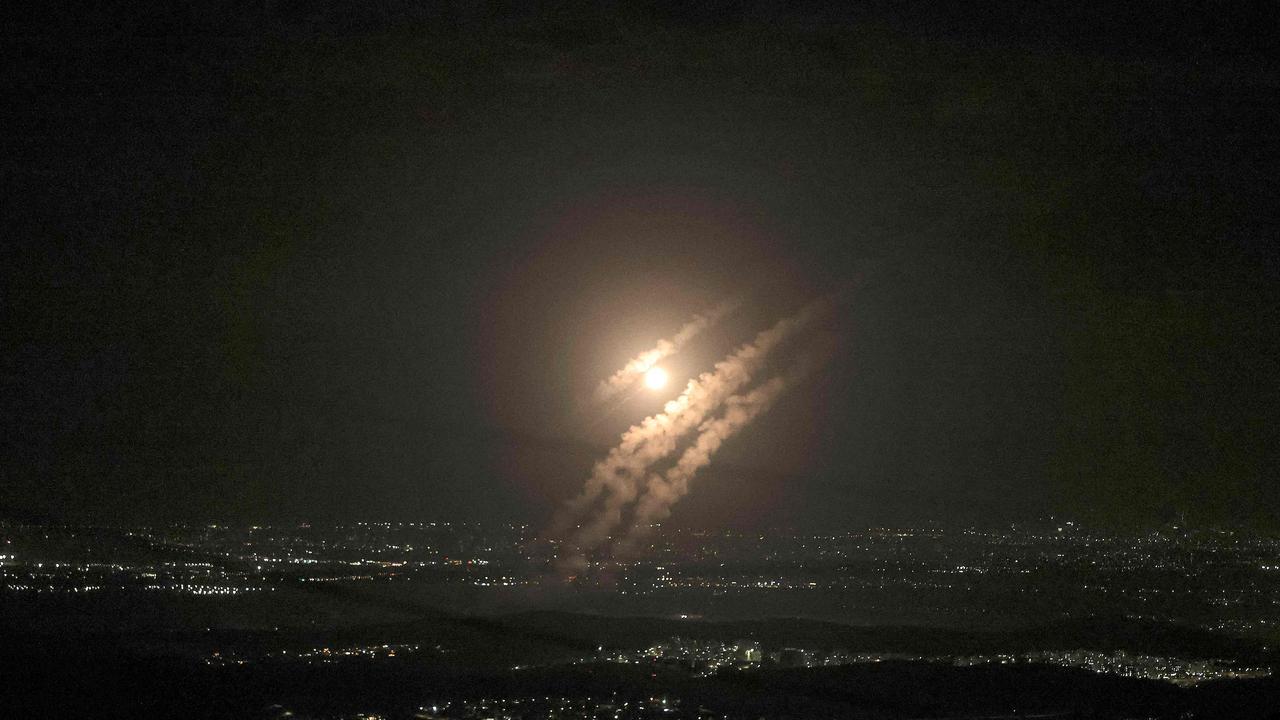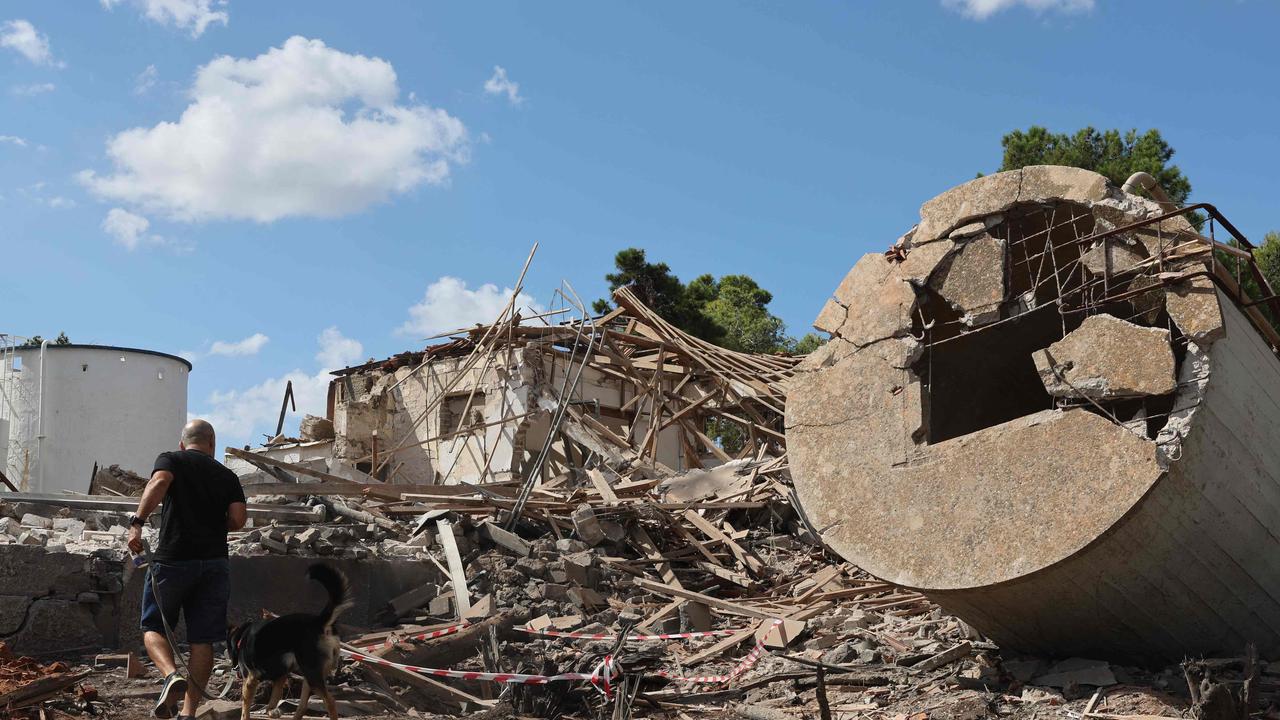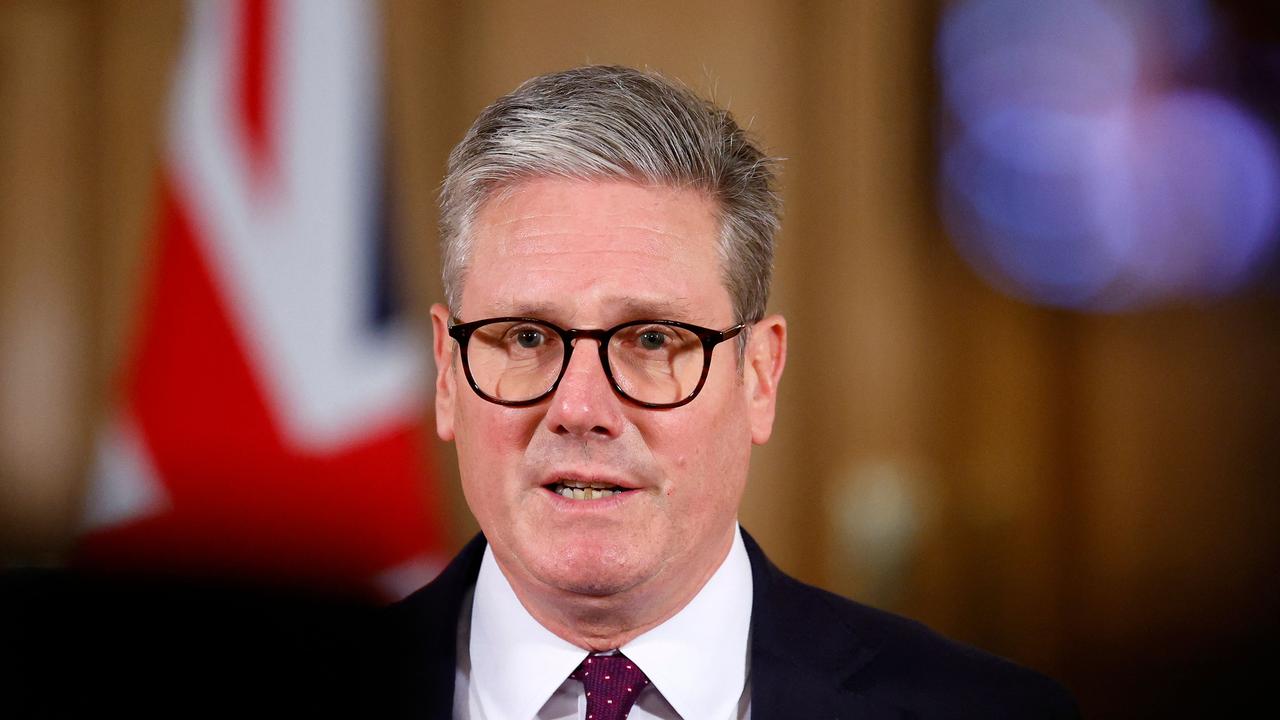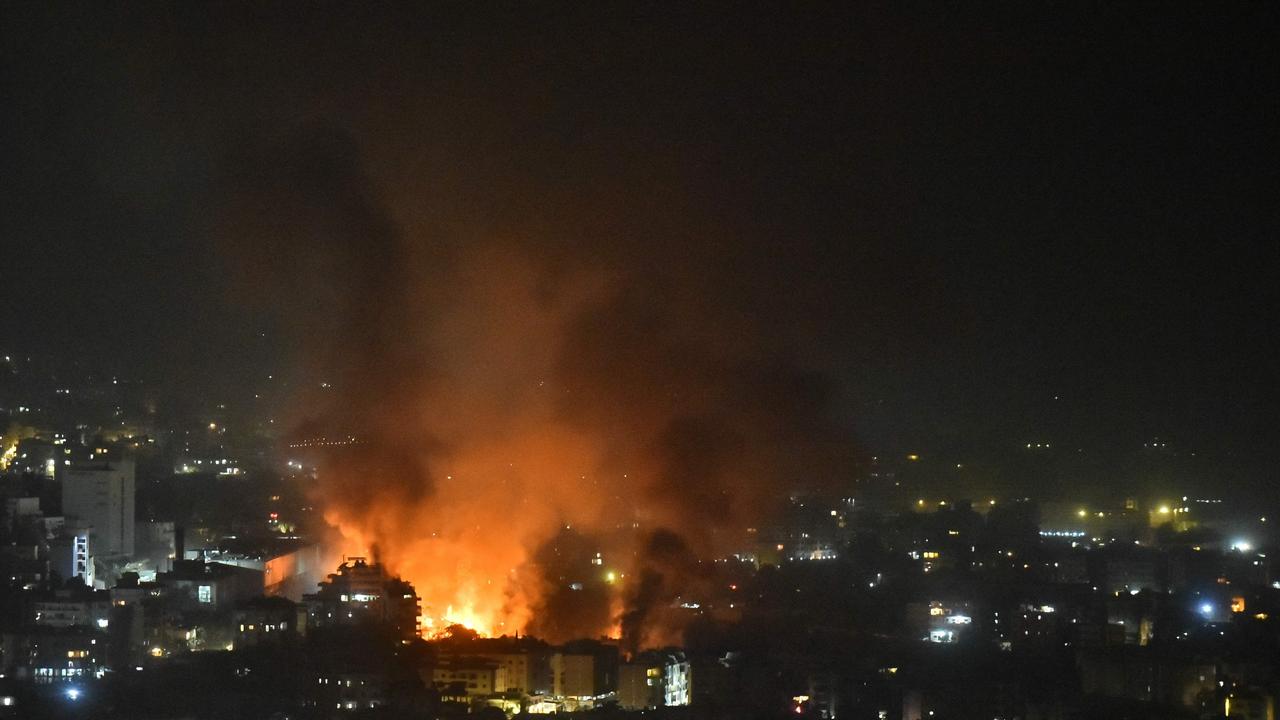‘Ready’: Israel finalises plan to attack Iran
It’s been reported Israel has finalised what its response to Iran’s early October missile attack will be – and it could happen before the US election.
Israel’s response to Iran’s missile bombardment earlier this month is now “ready” and could occur before the US election.
US broadcaster CNN has said that sourced have told it that Israel has finalised its plans which the Biden administration is worried could spark a regional war.
Israel has vowed revenge for the early October 1 attack, which killed one person and damaged several air bases. Iran, in turn, has said it will respond to any Israeli strikes, setting the scene for a dangerous and deadly tit-for-tat between the two nations.
It comes amid reports Britain is planning to sanction two of Israel’s most far right ministers, who have been a driving force behind Prime Minister Benjamin Netanyahu’s failure to agree to a ceasefire which could lower tensions.
It’s been reported that Israel has assured the US neither Iran’s nuclear facilities nor it oil infrastructure would be hit in any strike.
Any counter attack would be focused in military facilities.
However Mr Netanyahu has also said the finals decision on targets would be up to Israel, dangling the prospect that he could – at the last minute – simply ignore US President Joe Biden.

American officials have also told CNN they expect any Israeli attack to come before November 5, the US Election Day.
They could potentially harm the prospects of Democratic candidate and current Vice President Kamala Harris.
While the timing of any military action against Iran is not toed to the US election, Mr Netanyahu is nonetheless through to be sensitive to the political ramifications and how they could reverberate in the US.
Although, Washington DC could be forgiven for thinking that is not the case.
After apparent US pressure to cease its bombing of Beirut, Israel again bombed the Lebanese capital after a five day hiatus.
Five people were killed, including the local mayor in the southern Lebanese city of Nabatieh when a council building was struck by Israel.
Israel has claimed it hit Hezbollah targets.
Hezbollah said it fired rockets at the northern Israeli town of Safed on Wednesday, the third such attack in 24 hours which the Lebanese armed group described as a response to Israeli raids.

British Prime Minister Keir Starmer said on Wednesday that the government was considering sanctions against far-right Israeli ministers Itamar Ben Gvir and Bezalel Smotrich.
Asked in parliament if the government would sanction the two officials, Mr Starmer said: “We are looking at that because there are obviously abhorrent comments along with other really concerning activity in the West Bank.”
National security minister Ben Gvir and Mr Smotrich, who is finance minister, are vocal supporters of settlements in the West Bank, which are considered illegal under international law.


Mr Smotrich has also triggered international uproar by suggesting it would be justified to starve two million Gazans to free Israeli hostages in the Palestinian territory.
After Mr Starmer’s comments, Mr Smotrich remained defiant, vowing to fight Israel’s enemies in Gaza, Lebanon and Iran while working to prevent the establishment of a Palestinian state.
“No threat will stop me from doing what is right and moral for the citizens of Israel,” he posted on X.
Earlier this week, former foreign secretary David Cameron revealed that the previous Conservative government had been “working on” sanctions against the “extreme” politicians.

Also on Wednesday, Iran’s foreign minister Abbas Araghchi said that new Western sanctions against Iran were “hostile action” and would not help to resolve regional tensions, state media reported.
On Monday, the 27-member European Union imposed sanctions on prominent Iranian officials and entities, including airlines, accusing them of taking part in the transfer of missiles and drones for Russia to use in its war against Ukraine.
Tehran has repeatedly denied the accusations.
Last week, the United States expanded sanctions on Iran’s oil industry in response to Tehran’s October 1 attack on Israel, which has vowed to respond.
Iran said the attack was in retaliation for the killing of Tehran-aligned militant leaders in the region and a general in its Revolutionary Guards.



